It’s simple: if you get great results, you get great results—it’s a matter of fact. And it doesn’t matter where you work if you have a solid work ethic and focus on providing high-quality outcomes. Jobs like programming are flexible and can be done anywhere worldwide. Unfortunately, some bosses seem to think that if you’re not in the office, you ‘must’ be slacking off, no matter how outstanding your results might be.
Redditor u/redditadmindumb87 shared a story about a buddy of his, ‘Tim,’ who is a very competent senior programmer who works with AI technology with tons of experience. During the pandemic, he moved from New York City to Michigan to enjoy a higher quality of life. However, when his boss demanded that he move back for work, he decided to quit. Things took a surprise twist when the company finally realized how essential Tim really was. However, not everyone was in agreement whether the worker’s behavior was the best way to solve the problems he’d faced. Read on for the full story!
Many employees who get great results and work far more efficiently from home aren’t all that fired up about coming back to the office

Image credits: Djordje Petrovic (not the actual photo)
Someone shared how their friend, a senior programmer, pushed back against his company’s policy to return back to the office


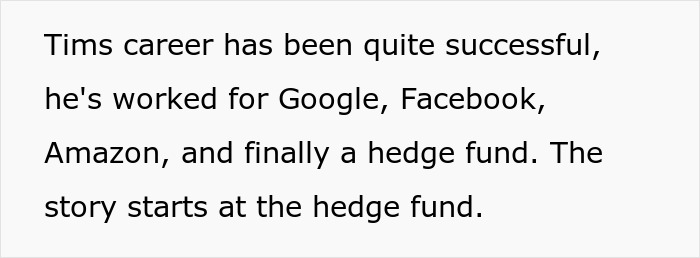


The programmer had decided to move back home during the pandemic but didn’t tell any of his superiors about his decision



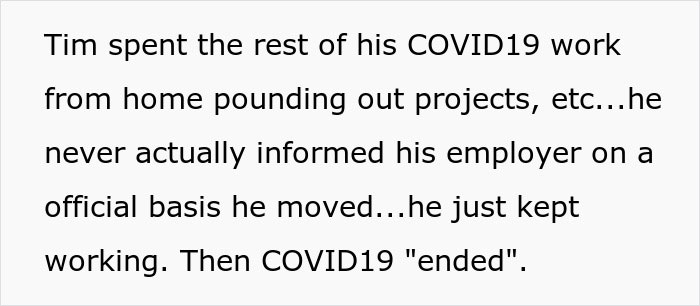
When his boss demanded that he go back to the office, he decided to stand up for what he valued the most
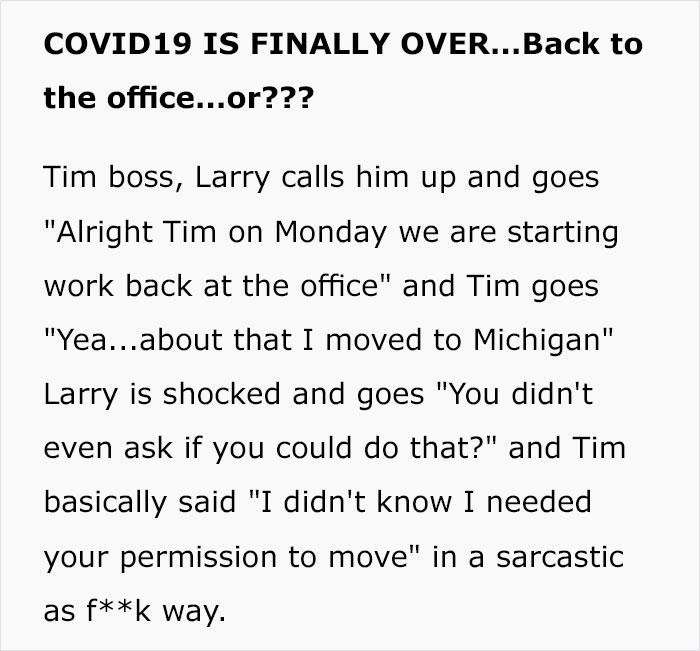

Image credits: Ono Kosuki (not the actual photo)
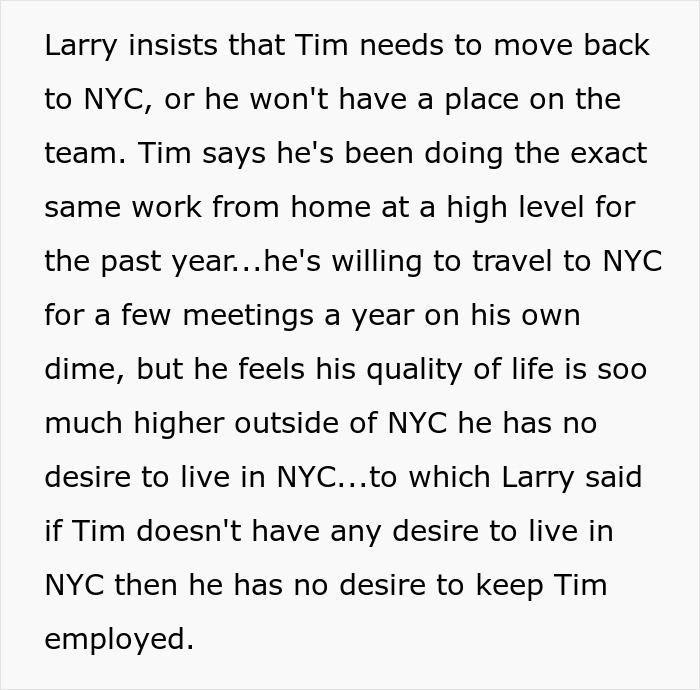
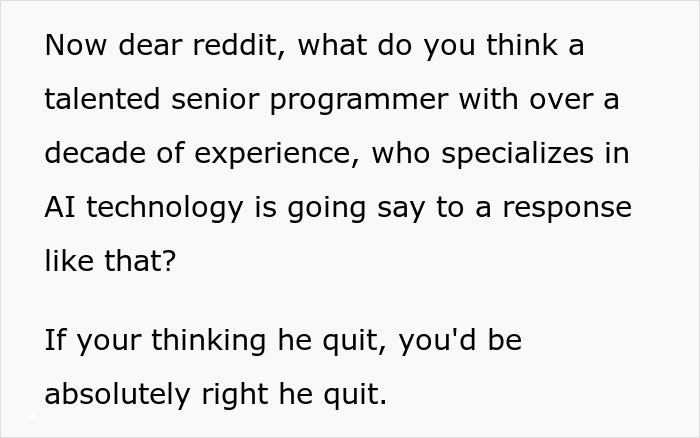
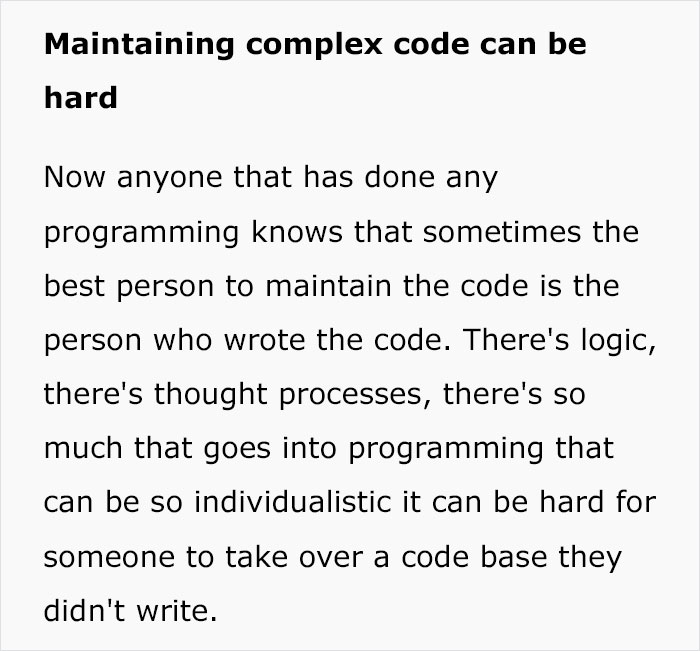
The company quickly realized just how essential the programmer had been


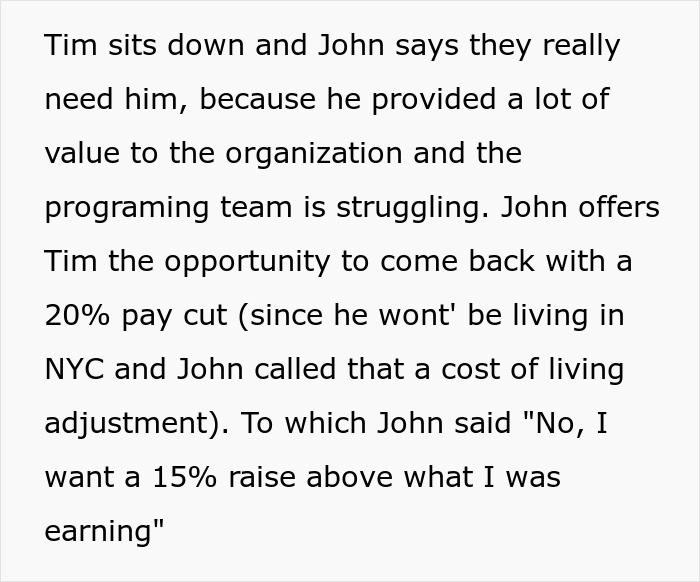

Image credits: The Coach Space (not the actual photo)
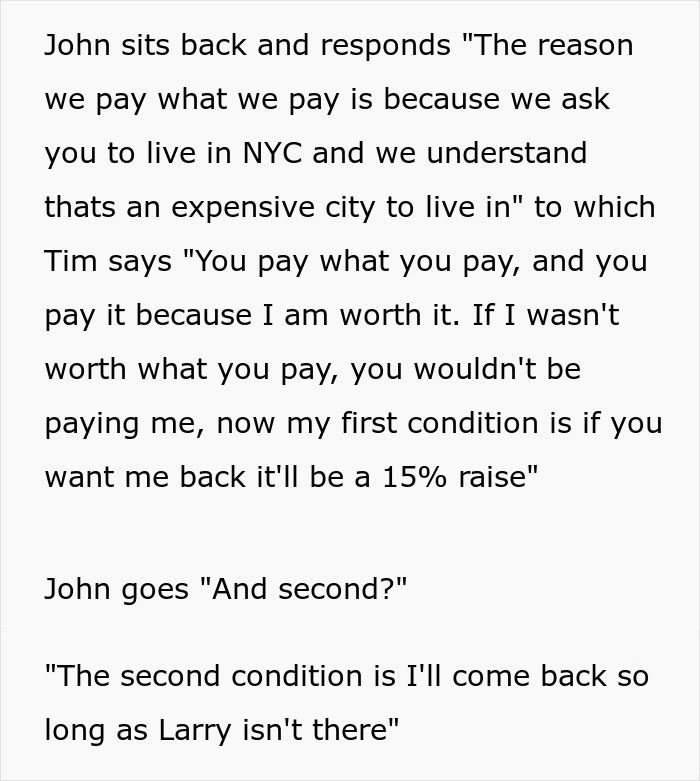

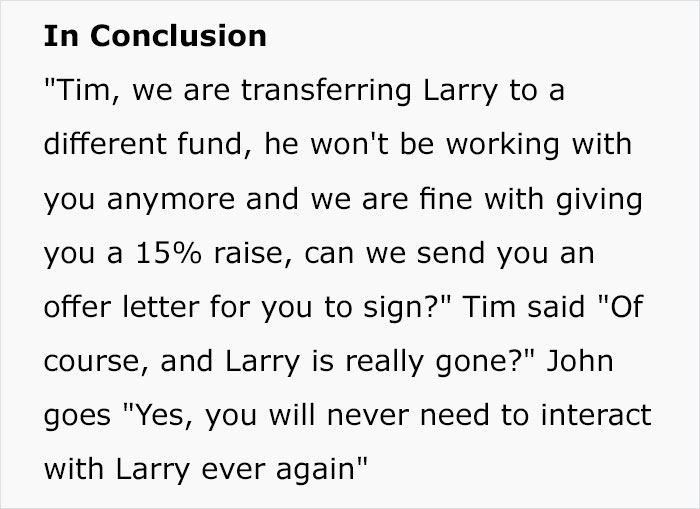

The senior employee managed to get everything that he wanted and came out on top
Tim’s friend gave redditor u/redditadmindumb87 permission to post the story on the r/ProRevenge. Unfortunately, the OP’s account got suspended for an unknown reason, so we were unable to reach out to them. The author of the post shared how Tim kept doing very high-quality work even though he was now working from Michigan.
However, he had not officially told his superiors that he’d moved there during the Covid-19 pandemic. So it came as a bit of a shock to his boss, ‘Larry,’ when the pandemic ‘ended,’ and he wanted some personnel working back at the office, not from home. But Tim wasn’t willing to sacrifice the quality of life he was enjoying just to move to NYC, which was cramped and far more punishing on his wallet. So he quit.
Fast forward a few weeks and the CEO of the company, ‘John,’ got in touch with Tim about him possibly coming back to the company. However, what the boss was offering the senior programmer wasn’t really fair: a 20% pay cut as a way to adjust for his lower cost of living outside of NYC. Having your pay slashed by a fifth for providing the same level of work is ridiculous.
The programmer refused, asked for a 15% raise, and demanded that his direct boss Larry be removed from the team. Long story short, Tim was such an experienced professional that he got everything that he asked for. This was a small victory for work-from-home proponents everywhere.
Both WFH and working from the office have their upsides
At the core of every single WFH discussion lies a simple question: what works best for a particular employee in their specific job position? If your job is to directly work with clients all day long, it’s highly likely that you’ll be asked to show up at the office at least a few days a week.
While the pandemic has taught us all that it’s perfectly possible to have remote meetings, many of us know deep in our guts that it’s far better to meet someone in person. Zoom calls aren’t as great an alternative to speaking to someone face-to-face as some would think. There’s a lot of information lost when you can’t fully see someone’s body language.
Meanwhile, some managers believe that directly interacting with other employees fosters more cooperation and a better team spirit. You’ll care more about those coworkers who you sit next to in the office, whom you eat lunch with, and whom you gossip with next to the coffee machine. On the flip side, if your colleagues are just names on a screen you sometimes message, the bond between you probably won’t be as strong.
Great managers will consider what works best for their employees, not just the company
A lot depends on the employee’s values and where they function at their peak. If they prioritize their family, hobbies, and free time, and enjoy controlling their work surroundings, they’ll be more likely to want to work from home whenever possible. Meanwhile, if someone prioritizes social interactions with their colleagues and thrives in a more dynamic atmosphere, they might not mind the long commute to the office.
As Gleb Tsipursky, Ph.D., notes on Psychology Today, most employees actually prefer hybrid or remote work. Meanwhile, research has shown that WFH productivity is “generally higher than in the office,” especially when it comes to individual tasks.
Bad managers will try to impose whatever they feel is ‘right.’ Good managers will take what’s best for each team and worker into consideration. The best way forward is to be somewhat flexible and strike a balance between what the company needs and what the employees want. After all, you don’t want your top talents to quit just because you’re stubborn about remote work due to whatever assumptions you might have.
Here’s how some readers reacted to the programmer’s story, as shared by his friend


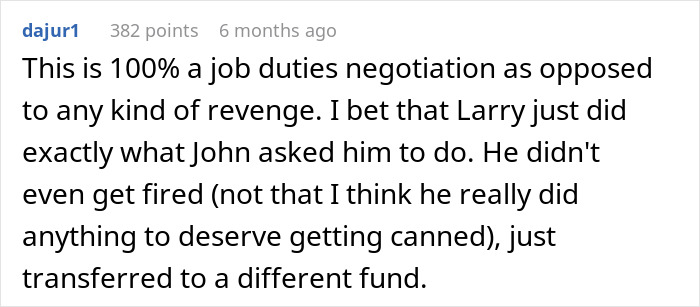
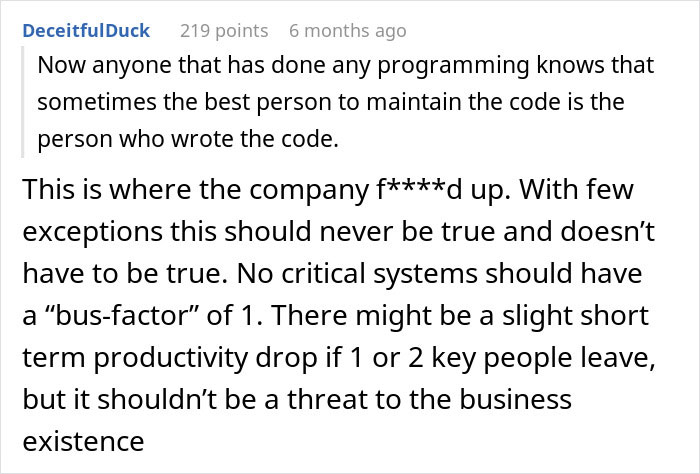




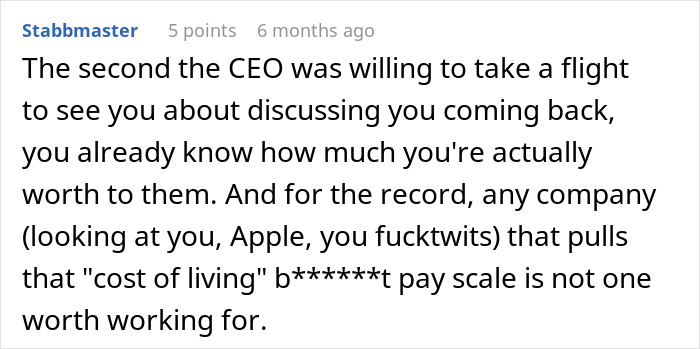
However, not everyone was quick to agree with what the employee had done. Some questioned the entire situation
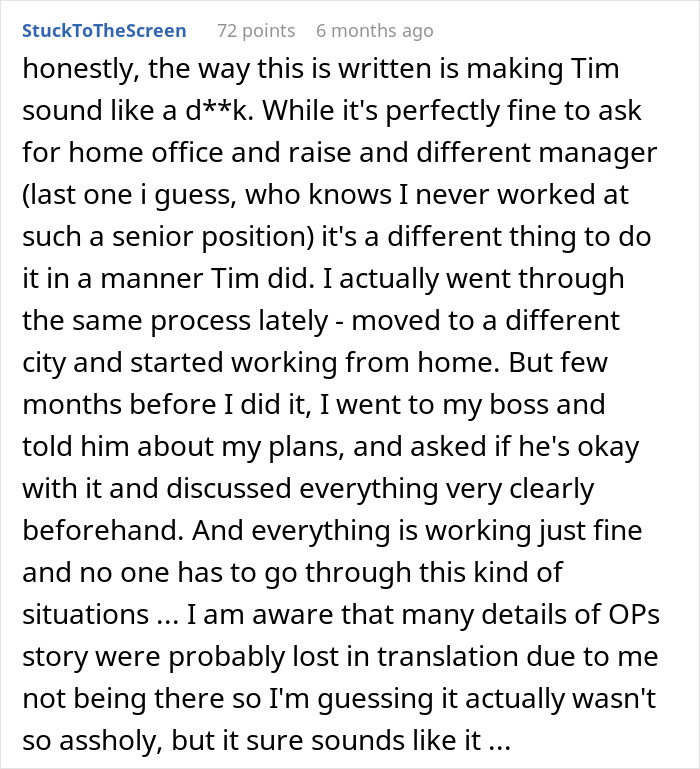
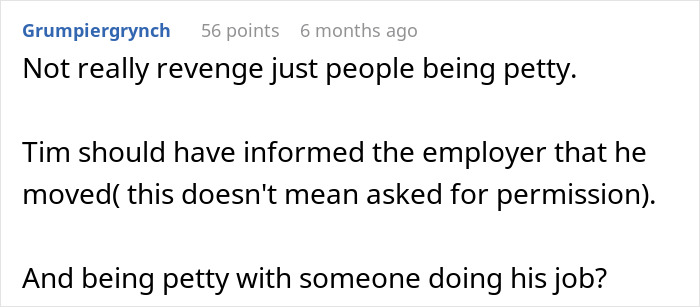
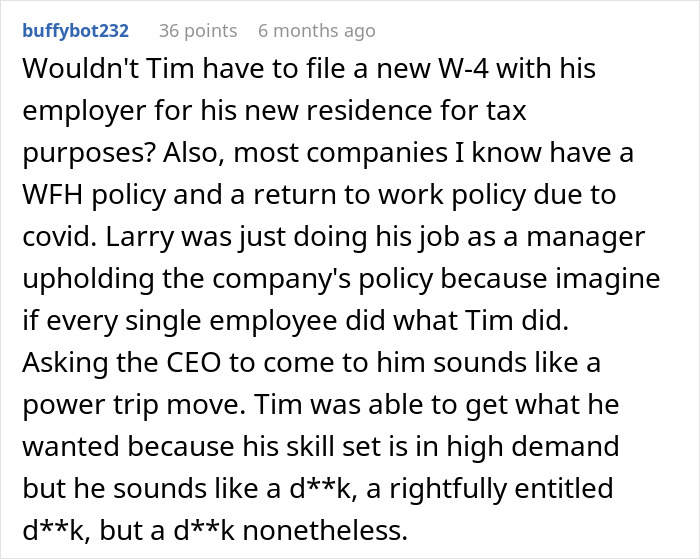


The post "I'll Come Back As Long As Larry Isn't There": Guy Refuses To Go Back To Work Unless He Gets A Raise And Will Never Have To Work With One Employee first appeared on Bored Panda.
from Bored Panda https://ift.tt/CIaVKuc

